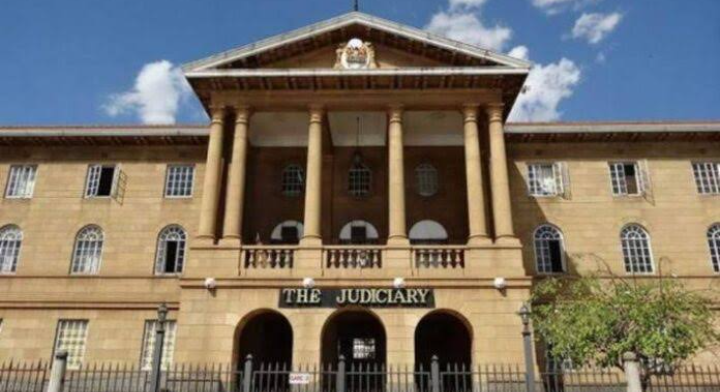Several court rulings have raised concerns about lawyers mismanaging funds received from clients under ‘professional undertakings,’ often diverting them for other uses, which judges have called outright fraud.
Highlighting a rising trend of legal practitioners using unethical tactics to exploit clients, at least three law firms have been recently indicted for professional misconduct in the past few months.
A lawyer’s undertaking, as outlined by the Law Society of Kenya (LSK) Code of Conduct, is a personal and professional promise.
It is a legal obligation based on the principle that lawyers, as members of an honorable profession, will honor their word.Section 14 of the Advocates (Professional Conduct) Regulations clearly states that a lawyer should not give an undertaking without the authority or means to fulfill it, nor knowingly breach it.
In a February ruling, Milimani High Court Judge Janet Nzilani Mulwa ordered Nairobi-based lawyer Conrad Anagwe Maloba of Conrad Maloba & Associates to repay Sh20 million, with interest, on account of a breached professional undertaking.
“The Respondent (Conrad Maloba) shall within 30 days from the date of this judgment honor the professional undertaking dated June 15, 2021, by refunding the applicants the sum of Sh20,000,000, plus court-rate interest from the date of the Summons filing. The Applicants shall have the application costs,” ruled Justice Mulwa.
Court evidence revealed that Ugbad Consult Limited, under a joint venture agreement (JVA) signed on June 18, 2021, had entered into an agreement with Maloba’s client, Christine Imbosa Mbogua, for the construction of a 20-floor residential building.
It was agreed that after the project’s completion, the proprietor (Ms. Mbogua) would receive 30 percent of the residential units, while the developer (Ugbad Consultants) would take 70 percent.
The parties also agreed that, upon execution, the developer would pay the proprietor Sh20 million in exchange for two three-bedroom units, a sum regarded as the off-plan value for those units.
They further agreed to establish a Special Purpose Vehicle (SPV) for the project under the name Sakina Real Estate Limited.
To facilitate the payment of Sh20 million to the proprietor, Maloba issued a professional undertaking on June 15, 2021, promising to return the funds within seven days if the agreement were terminated.
The money was deposited into the lawyer’s bank account the following day.
However, the contract was canceled due to alleged suspicious ownership of the property by the proprietor, where the project was to be developed.
The developer claimed it uncovered, after conducting due diligence, that the property’s title deed was under investigation by the Directorate of Criminal Investigation, with third-party claims to the land.
Maloba contended that he could not fulfill the undertaking because the agreement was improperly terminated, arguing that it was not done following the agreement’s requirement of a 30-day notice by the developer.
Maloba further asserted that the developer’s lawyers failed to form the SPV, despite him fulfilling his part of the deal.
He also claimed the property was vacant, with occupancy contingent on the SPV’s incorporation.
The judge dismissed his arguments, ruling that the lawyer was obligated to honor the professional undertaking. “He cannot avoid fulfilling the same by citing conditions not included in the Undertaking,” the judge noted.
In a related ruling, city lawyer Harit Sheth of Harit Seth Advocates was ordered to repay Sh38.7 million for breaching a professional undertaking.
The law firm had issued an undertaking on behalf of Britannia, Jambo Biscuits’ manufacturer, to transfer business assets to Jambo Africa Limited (Mauritius) in a deal finalized on June 24, 2016.Court documents indicated that the law firm committed to pay funds held in an escrow account, in case of the dismissal of a pending suit involving Britannia.
The ruling, delivered in December 2021, ordered the funds released to Jambo, although purchasers challenged the decision in the appellate court.
The law firm claimed it did not have access to the funds and sought to await the appeal’s outcome, arguing that the undertaking was unenforceable since it had not received escrow funds.
“I allow the plaintiff/applicant’s originating summons dated June 1, 2022, and order the 2nd Respondent (Harit Sheth) to fulfill the professional undertaking dated September 9, 2016, by paying the Plaintiff (Britannia Sacco) Sh38,737,349.46 within 30 days of service of this court’s ruling and order,” Justice David Majanja ruled.
The judge added that the law firm “cannot claim not to have received the escrow funds when they control the escrow account as lawyers of Jambo on whose behalf they made the Undertaking.”
Similarly, flamboyant lawyer Nick Ndeda of Nick Ndeda Advocates & Associates was ordered to repay more than Sh4 million taken from Kencom Sacco Society Limited under a professional undertaking but misused for other purposes.
High Court Judge Lady Justice Asenath Ongeri directed Ndeda to refund the amount in a judgment dated August 18, 2023.
Lawyer Moses Sande Makhandia informed the court that Kencom Sacco was to obtain a loan from Ndeda’s client, Infracapital Investment Group Limited, a UK company.
The offer letter stipulated that the funds were necessary for due diligence, which the Sacco’s lawyers paid on March 8, 2017.
Ndeda acknowledged receiving the funds on March 28, 2017, noting a shortfall of Sh88,238.Later, the Sacco decided not to proceed with the transaction, instructing Ndeda to refund the funds due to delays and lack of communication on his part.
The court ruled that Ndeda had failed to honor the clear and enforceable professional undertaking and that he improperly withheld the funds.Justice Ongeri remarked, “Any funds received on the strength of a professional undertaking must be used only for the agreed purpose.
Using them otherwise is a breach of fiduciary duty and amounts to conversion and criminal behavior.”The court ordered Ndeda to repay USD 35,000 or its equivalent in Kenyan shillings, with interest and costs from the date of filing.





















Add Comment